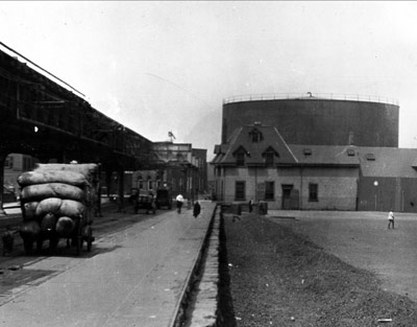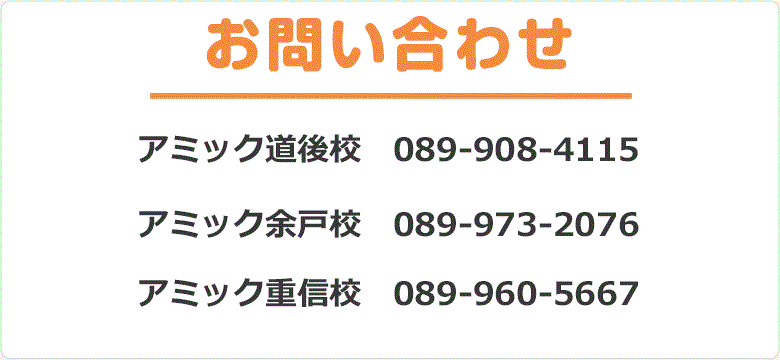月別アーカイブ:2019年1月
5 American Foods I’m Looking Forward To Eating Again – 英会話・英語 アミック
As I enter the final stretch of my time in Japan, I’ve started to dream about all the foods I’ve sorely missed while being away from America.
1. Chipotle – Priority number one after greeting my family at the airport (and maybe even before that) will be making a trip to Chipotle. This fast-casual restaurant serves burritos and tacos, letting you choose your own toppings; my go-to is a chicken burrito with extra rice, lettuce, medium salsa, pico di gallo, and if I’m feeling crazy, black beans. It’s one of the few things I can get from a restaurant that will fill me up for $7.
2. SunButter – I have a nut allergy, so SunButter is my peanut butter (and ice cream). Instead of peanuts, it’s made from sunflower seeds and depending on who you ask, tastes like peanut butter. While it’s easy for me to eat too much in one sitting if I’m not careful, I love putting this stuff on pretty much anything I have around the house: bananas, crackers, in my scrambled eggs…
3. Cincinnati-style Chili – This is a southwest Ohio-delicacy I never paid much mind to (or really had a desire to eat) until I moved abroad. Cincinnati chili is spaghetti topped with a cinnamon and clove-spiced meat sauce and finally, cold shredded cheese. It looks gross, probably sounds gross, and tastes…pretty good.
4. Candy Corn and Candy Canes – I desperately wanted to introduce my students to these classic holiday confections this past year, but I unfortunately couldn’t find anywhere to buy them in Japan. Candy corn is not actually corn (and some would argue that it barely qualifies as candy), but is instead an orange, yellow, and white sweet that resembles a kernel of corn. Candy canes are red and white-striped sticks that host a strong peppermint flavor. Their hook shape makes them fun to hold and eat (and get all over your mouth if you’re a little kid).
These two candies make up two of the four main food groups for elves.
5. CHEESE – While you can of course buy cheese in Japan, the options aren’t quite as wide as they are in America. In particular, I’m looking forward to sinking my little cheese knife into smoked gouda, blue cheese, and Vermont cheddar.
英会話 英語 アミック Resolutions
We are close to the end of January, and by this stage people have either worked out and made a list of resolutions, or broken them. I have mine pinned on a wall in the kitchen, so that I am reminded every day.
The most common ones people set are about health and fitness, and saving and earning money. And yes, they are on the top of my list, but there are some other ones, too.
This year I need to improve and work on my mental skills. I used to do puzzles, and meditate, but haven’t for a long time. I also need to read more. I’ve only just started, but all I need to do is make it a habit- that’s what I keep telling myself.
I want to work on being optimistic, reduce stress, and be happy with my life. I’m going to make it a habit to find joy in even the small things and not worry so much when problems get you down.
It’s time to learn languages (again). I used to study Japanese and took lessons years back and would like to get back into it. I would also like to brush up on my Thai.
Have you started on your New Year’s resolutions?
Flat Stanley and the Curse of the Dumpster 英会話・英語 アミック
When I was in the second grade, I received a letter from an old school friend. I opened the envelope to find a letter from her class and a drawing of a boy wearing a colorful tie. The letter went on to explain that I had received Flat Stanley, a school boy who was accidentally flattened by a falling bulletin board. Stanley’s new flattened condition allowed him the luxury of sliding under locked doors and flying through the air as a kite. Perhaps the greatest perk of being flat is that Stanley could now travel the globe for just the price of a stamp. My friend sent me Flat Stanley with the hopes that I would take a picture of Stanley with my class, send her the photo and a letter about my school, and then send Flat Stanley off on another adventure via mail. However, being a second grader with much better things to do, I promptly lost Flat Stanley and my friend’s letter. I hope that my Flat Stanley found the bottom of a dumpster as interesting as Cambodia or Peru could’ve potentially been.
A little history on our friend Stanley; Flat Stanley was a book that was published in 1964 by Jeff Brown. It wasn’t until 1995 that a third-grade teacher in Canada had the idea of using Flat Stanley and his story to create a small culture exchange. Not only does Flat Stanley promote interest in travel and different cultures, it also helps improve reading and writing skills in a fun way. I’m not sure what exactly made me think about my Failed Stanley from back in the 90’s, but it’s interesting to note that he’s still connecting classrooms around the world today. If you’re interested in Flat Stanley or connecting your classroom to others around the world, I highly suggest visiting The Flat Stanley Project. This website will help you arrange an exchange with another school to help continue Flat Stanley’s legacy.
Flat Stanley in Nigeria
11 Portmanteaus I Did Not Know Were Portmanteaus – 英会話・英語 アミック
Recently I’ve been enjoying teaching my students about portmanteaus. These are similar to compound words (light + house= lighthouse), but the difference is that some letters get cut out from one or both of the words.
Some simple and obvious portmanteaus would be cheeseburger (cheese + hamburger), smog (smoke + fog), and newscast (news + broadcast).
In my research for these lessons I came across several other words that I had no idea were portmanteaus:
- botox= botulism + toxin
- electrocute= electric + execute
- endorphin= endogenous + morphine
- fortnite= fourteen + nights
- gerrymandering= Massachusetts Governor Elbridge Gerry + the perimeter of a districts he created resembled a salamander
- Microsoft= microcomputer + software
- napalm= naphthene + palmitate
- Skype= sky + peer-to-peer
- snark= snide + remark
- Verizon= veritas (Latin for “truth”) and horizon
- vitamin= vita + amine
Perhaps even more interesting is that the name for this lexical phenomenon came from none other than Lewis Carrol, author of the Alice in Wonderland books. That’s what I call surpascinating.
Molasses: sticky, sweet, deadly? 英会話・英語 アミック
Molasses is a sweet, syrupy product that is created by refining sugar cane. Have you ever heard the simile “slow as molasses in January” to describe someone or something slow-moving? Molasses and similar products (think honey or maple syrup) at room temperature move quite slowly. However, today is the 100th anniversary of a day when molasses didn’t move so slowly; in fact, the sticky goop caused the deaths of 21 people living in Boston, Massachusetts. I’m talking, of course, about the Great Molasses Flood of 1919.
On January 15, 1919, a large tank that stored molasses burst flooding the streets of Boston. The weather had gotten slightly warmer which increased the temperature of the molasses and started a fermentation process. Additionally, the construction of the storage tank had neglected safety testing, such as filling it with water to check for leaks. The storage tank leaked so badly that the company painted it brown to hide the leaks. Nearby residents often scraped the leaking molasses from the tank for personal use. The fermenting gases along with lackadaisical safety testing caused the storage unit to explode sending a wave of molasses up to 25 feet high at some points and causing 2 to 3 feet in flooding. It’s estimated that the molasses flowed at a speed of 56 kilometers per hour which quickly cooled and harden causing great difficulty to free oneself from it’s sticky embrace.
Clean up efforts were a nightmare, with 300 to 400 volunteers using salt water and sand to wash away or absorb the brown goop. Public transportation, handrails, doors and floors were sticky for long afterwards as cleaners tracked molasses with their shoes where ever they went.
So, the next time you want to eat some gingerbread cookies or enjoy some pancakes, pray your molasses doesn’t become murderous.

The offending molasses storage tank in an undated picture. Watch out!













